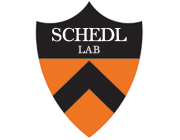Reactive oxygen species signaling in primordial germ cell development in Drosophila embryos
Publication Year
2020
Type
Journal Article
Abstract
REDOX mechanisms that induce biosynthesis of the reactive oxygen species (ROS) have attracted considerable attention due to both the deleterious and beneficial responses elicited by the reactive radical. In several organisms including Drosophila melanogaster, modulation of ROS activity is thought to be crucial for the maintenance of cell fates in developmental contexts. Interestingly, REDOX mechanisms have been shown to be involved in maintaining progenitor fate of stem cells as well as their proliferation and differentiation. Here, we have explored the possible functions of ROS during proper specification and developmental progression of embryonic primordial germ cells (PGCs). Indicating its potential involvement in these processes, ROS can be detected in the embryonic PGCs and the surrounding somatic cells from very early stages of embryogenesis. Using both "loss" and "gain" of function mutations in two different components of the REDOX pathway, we show that ROS levels are likely to be critical in maintaining germ cell behavior, including their directed migration. Altering the activity of a putative regulator of ROS also adversely influences the ability of PGCs to adhere to one another in cellular blastoderm embryos, suggesting potential involvement of this pathway in orchestrating different phases of germ cell migration.
Keywords
Journal
Genesis
Volume
58
Issue
6
Pages
e23362
Date Published
06/2020
ISSN Number
1526-968X
Alternate Journal
Genesis
PMID
32302036

